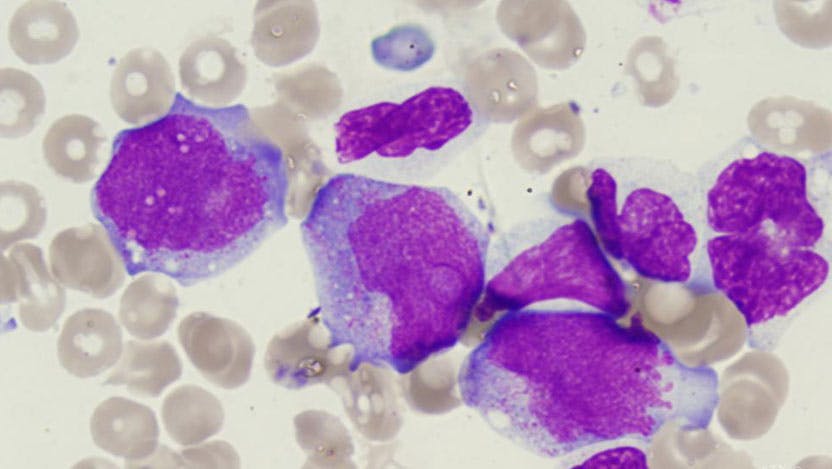Researchers identify gene that contributes to secondary cancers

A 2018 National Institutes of Health study found that patients who received chemotherapy to treat a solid tumor have a small but significant increased risk of developing a secondary cancer later in life that arises from that initial cancer treatment. Known as therapy-related myeloid neoplasms (t-MN), these secondary malignancies are aggressive blood cancers that are difficult to treat.
Now, a new study by researchers at the University of Chicago Medicine Comprehensive Cancer Center sheds light on how a critical protein, known as CUX1, plays a significant role as a gatekeeper for keeping t-MNs from developing. This research, led by the laboratory of Megan McNerney, MD, PhD, Associate Professor of Pathology, could help scientists develop new methods for treating these secondary cancers, which are expected to increase in incidence as more and more patients survive initial bouts of cancer.
“It's a good thing that patients are surviving long enough to even know about this problem of secondary cancers,” said Loss of a 7q gene, CUX1, disrupts epigenetically driven DNA repair and drives therapy-related myeloid neoplasms,” was published on September 2, 2021 in Blood and was supported by the National Cancer Institute (F30 CA232673, R01 CA2311880, R21 CA213247, P30 CA014599, T32 CA009594), the National Heart, Lung and Blood Institute (R01 HL142782), and the National Institute of General Medical Sciences (T32 GM007281). Additional authors include Julian Lutze, Ningfei An, Bonnie Hu, Saira Khan, Jeffrey Kurkewich, Tanner Martinez, Donald Wolfgeher, Sandeep Gurbuxani, and Stephen Kron, all from the University of Chicago.
